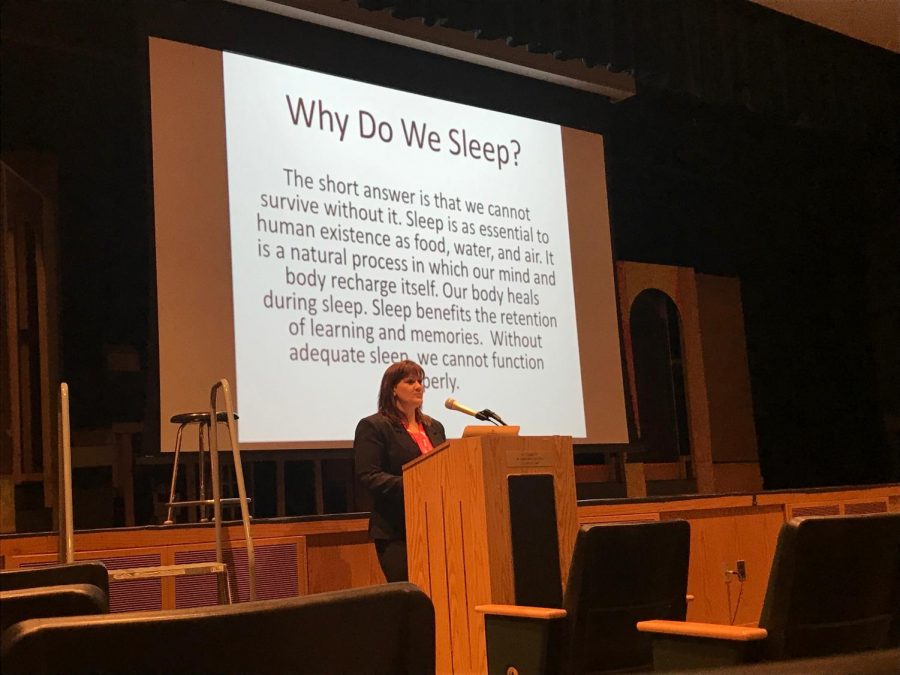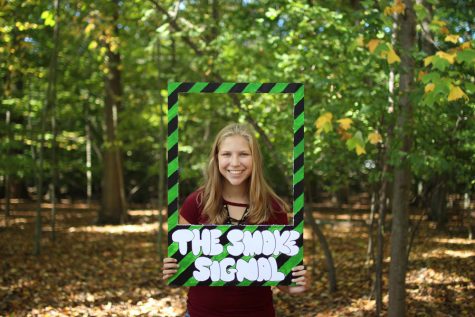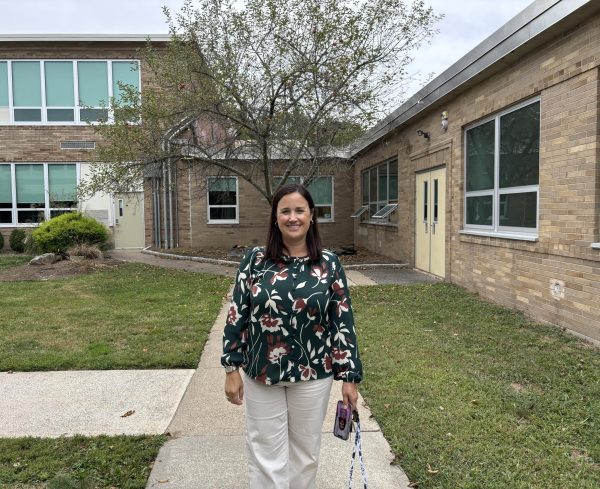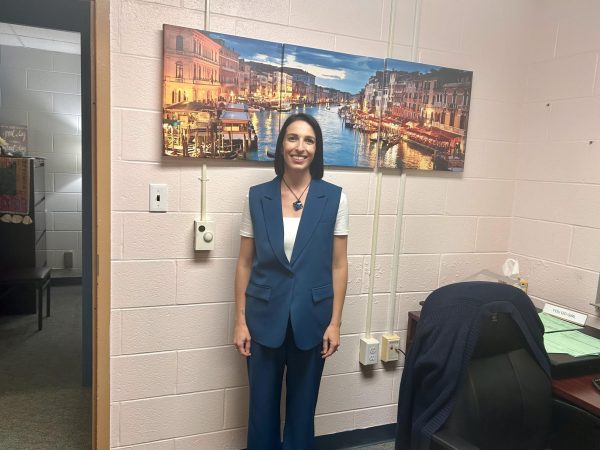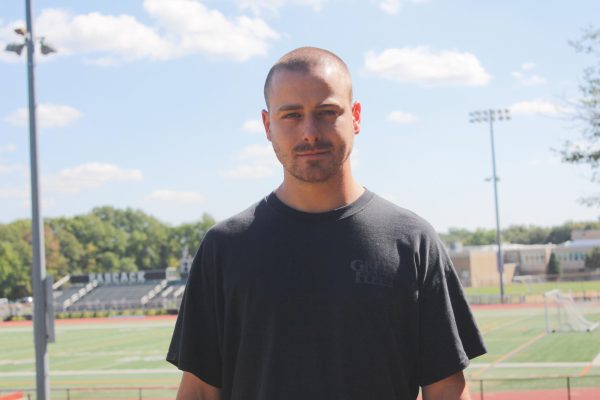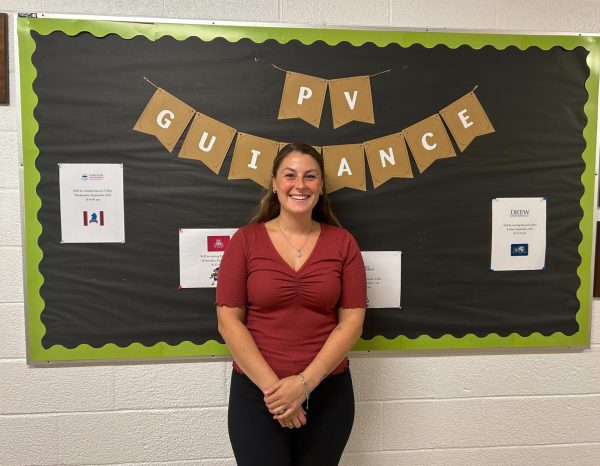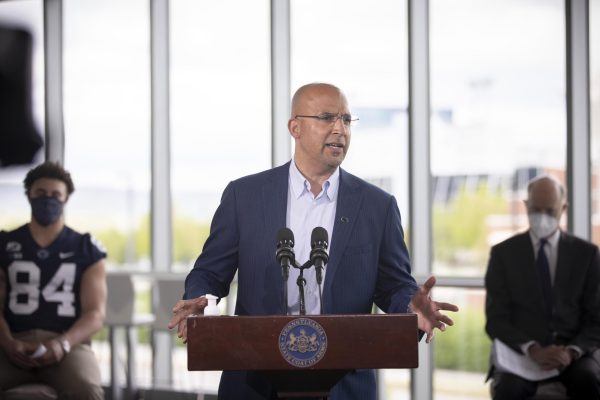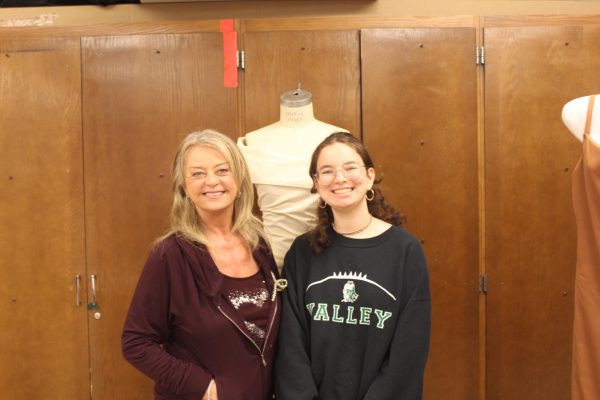Speaker talks to PV students about ‘The Teen Sleeping Crisis’
Alicia Braine visited Pascack Valley on Wednesday, Feb. 6, to discuss “The Teen Sleeping Crisis.” Honors U.S. history II and psychology teacher Ryan Walter hosted this assembly to show PV students how sleep impacts daily life.
Honors U.S. history II and psychology teacher, Ryan Walter, hosted an assembly to promote awareness on the crisis surrounding teen sleeping habits on Wednesday, Feb. 6, in the Pascack Valley auditorium. The assembly discussed “The Teen Sleeping Crisis,” teen sleep habits, sleep disorders, and the causes of this “crisis.”
Walter invited all PV students to listen to guest speaker, Alicia Braine. Braine works in the field of sleep medicine and runs many sleep clinics throughout the East Coast. This is Braine’s second visit to PV since her last visit three years ago.
“There are people out there who go throughout the day in some kind of haze,” Walter said. “There are some people who are just not there. They are in a cloud.”
In Walter’s psychology class, students are taught a unit on sleep and dream analysis which inspired him to host this assembly. He decided to have Braine speak to students to give them an idea of how sleep affects teens by comparing the brain waves of a student who receives a substantial night sleep versus one who does not.
Walter said that the first main cause of this “crisis” is the misdiagnosis of sleep disorders. Many people who have a sleep disorder do not even know that they have one. There are over 70 sleep disorders, including sleep apnea, insomnia, narcolepsy, restless leg syndrome, and many others.
“The second problem is a lot of people have absolutely terrible sleep habits,” Walter said. “Part of the reason is technology, our phones, and Netflix, but I think a lot of the problem is you guys are so hard working and want to do well. One of the things about PV students and kids, in general, is that they are really bad at taking care of themselves and having a realistic idea of what you can do in 24 hours. You guys are over-scheduled.”
According to Braine’s presentation, there are approximately 325 million people worldwide and over 93 million people in the U.S. who suffer from a sleep disorder.
“What we have to ‘wake up to’ is that this is something we have to talk about,” Walter said. “Teenagers, kids, parents, teachers, and administrators, we all have to figure this out.”
Melatonin is a natural hormone made by your body’s pineal gland, which helps you fall asleep at night, according to Braine. During the day, the pineal gland is inactive. When the sun goes down and darkness occurs, the pineal is “turned on” and begins to actively produce melatonin. Usually, this occurs around 9 p.m.
“The sleep cycle of a teenager is difficult,” Braine said. “The body naturally wants to go to sleep late and wake up in the middle of the day. Society does not recognize this sleep need, which leads to less than the desired nine hours of sleep. High school start times are considered, by experts, to be too early for the teenager.”
Braine called a teenager’s lack of sleep “sleep debt.” The causes are early school start times, after school activities including sports, clubs, and academics, after school jobs, and drinking, smoking, drug use, and caffeine.
According to Braine, another major cause of sleep deprivation is sleeping with an electronic device since they emit blue light. This short wavelength light affects the levels of melatonin that are released. Blue light can cause a delay in the pineal gland’s release of melatonin which cause increases in alertness, making it harder to sleep.
Braine said that 70 percent of children and 89 percent of teenagers have an electronic device within their sleep environment.
“If kids get enough sleep, they are better equipped to deal with their homework, the demands of their time, and they are able to handle it better,” Walter said. “If they don’t get enough sleep, it’s easy for people to break down emotionally and physically and not do as well in school and deal with depression and anxiety. Sleep is the magic medicine for any problem you really have.”
Katie Mullaney


